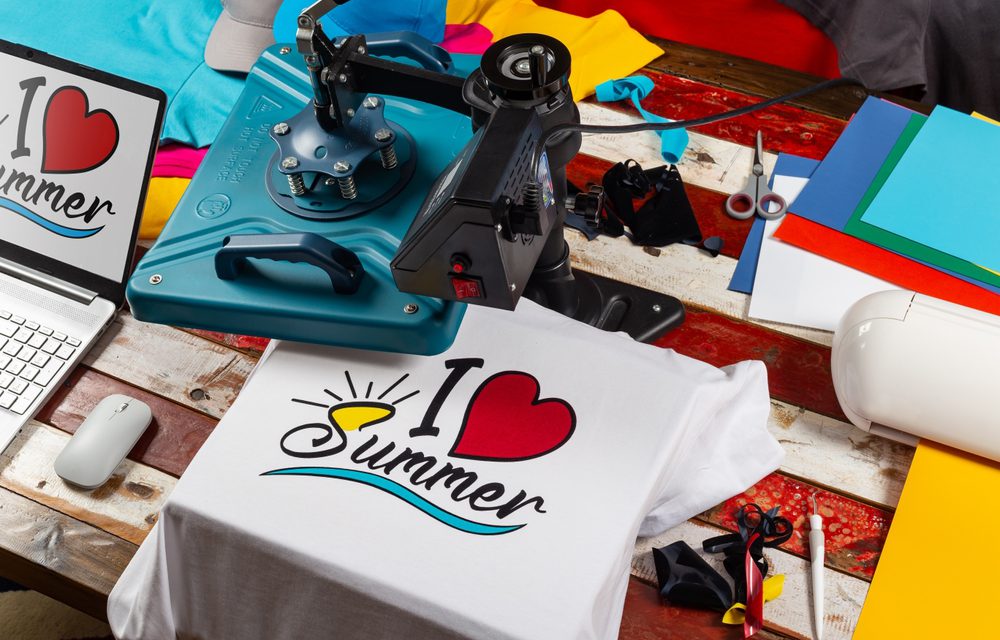Do you have a T-shirt printing machine, some creative ideas, and lots of gumption? Then you have the makings of a successful T-shirt business. Printing and selling T-shirts can be a creative side hustle, a garage start-up, or a full-time job. Either way, you’ll need to figure out what to do with all your inventory. Fortunately, when it comes to T-shirt business storage ideas, you have multiple options.
In this article, we’ll talk about different forms of inventory storage, including the pros and cons of each option. Some storage ideas are better suited for those just getting started, while others might be ideal for a growing business.
Let’s check out these inventory storage systems.
Should You Consider Drop-Shipping?
Drop-shipping is a popular choice for entrepreneurs who want to automate as much of the product creation and fulfillment process as possible. Generally, drop-shippers are companies (usually based overseas) that will physically make a product, store it, and then ship it when the product is sold.
While this option might work for a certain type of entrepreneur, it’s not ideal for anyone who wants to maintain control over the look and quality of their products. If you plan to make your own t-shirts and care about the cut, fabric, dye, and fit of your shirts, then drop-shipping is probably not the right solution for you.
Store at Your Home or Business
If you own a T-shirt printing machine for your small business, you can print and sell your T-shirts directly. If you’re just getting started, the most obvious place for storage inventory is your garage, spare room, or your physical storefront. Storing your T-shirts in your own space will keep your product close at hand and make it easy for you to control your merchandise.
Pros of At-Home Storage
- Convenience: Your T-shirts will easily be accessible, allowing you to quickly prep and ship orders as they come.
- No Storage Cost: You’re already paying the rent or mortgage on your home, so storing your inventory in your spare room won’t cost a thing.
- Control: You’ll have full control of your inventory when it’s under your watchful eye.
Cons of At-Home Storage
- Lack of space: As your business expands and your inventory grows, you can quickly find that your garage, closet, or the back room at your storefront isn’t big enough to store your inventory.
- Inconvenience: Storing your T-shirts at home means you can’t use that space for other needed purposes. That may mean parking your car in the driveway or giving up your home office.
- Risks: If you have pets, small children, or inconsiderate roommates, they could easily damage your T-shirts.
Third-Party Fulfillment Centers
A third-party fulfillment center might be an excellent storage solution for a small retail business. These warehouses are designed to store, pick, pack, and ship inventory, taking nearly all the sales logistics off your hands. All you have to do is ship them your product.
One of the most popular fulfillment options is Fulfillment by Amazon (FBA), which is open to all third-party Amazon sellers. Using FBA gives you access to Amazon’s massive user base and will allow you to qualify for Prime shipping. However, using FBA restricts you to the Amazon platform.
Pros of Third-Party Fulfillment
- Convenience: All inventory management and order fulfillment will be off your plate
- Large space: Fulfillment centers can accept a large amount of inventory, allowing you to keep a significant product supply available to customers.
- Bulk discounts: You might be able to save money if you have a lot of inventory to store.
Cons of Third-Party Fulfillment
- Minimum requirements: Some fulfillment centers require a minimum amount of product, meaning they might not be ideal for smaller businesses or start-ups.
- Storage fees: You can expect to pay a monthly storage fee based on the size of your inventory
- Fulfillment fees: You’ll also need to pay for fulfillment services, which can cut into your profits.
Self-Storage
Unsurprisingly, one of our favorite T-shirt business storage ideas is to rent a storage unit for your business. Storage units are flexible and convenient and allow you to maintain control of your inventory while freeing up space in your home or storefront. You can easily add shelves to better organize your space and store your shipping and packing supplies as well. (Learn how to store clothes in a storage unit without damage.)
Pros of Self-Storage
- Flexibility: Self-storage facilities offer units in a variety of sizes, making it easy for you to find exactly the amount of space you need.
- Affordable: Monthly rental fees are highly competitive.
- Grows with you: As your inventory amount changes, you can easily upgrade to a larger unit or downgrade to something smaller.
- Short-term contracts: Month-to-month contracts won’t tie you down if your T-shirt business doesn’t work out.
- Security: Your inventory is valuable. Storage facilities often include gates, cameras, locks, and lighting to deter criminal activity.
Cons of Self-Storage
- Monthly fee: You’ll pay a monthly storage fee. If your budget is razor-thin, it might be best to store your T-shirts at home, at least initially.
- More responsibility: You’ll need to handle your own fulfillment when you use self-storage. That may take away time from managing your business, marketing, and thinking up new, great T-shirt ideas.
Where To Find the Best Self-Storage for Your Inventory
You have many inventory storage systems to choose from when it comes to your T-shirts. If self-storage offers the right amount of flexibility, convenience, and cost-effectiveness, consider working with Price Self Storage.
We have facilities throughout California that offer storage units in a variety of sizes, month-to-month leases, and convenient payment options. If you’re looking for a great T-shirt business storage idea, you can’t go wrong with Price Self Storage.
Find a Price Self Storage near you.










